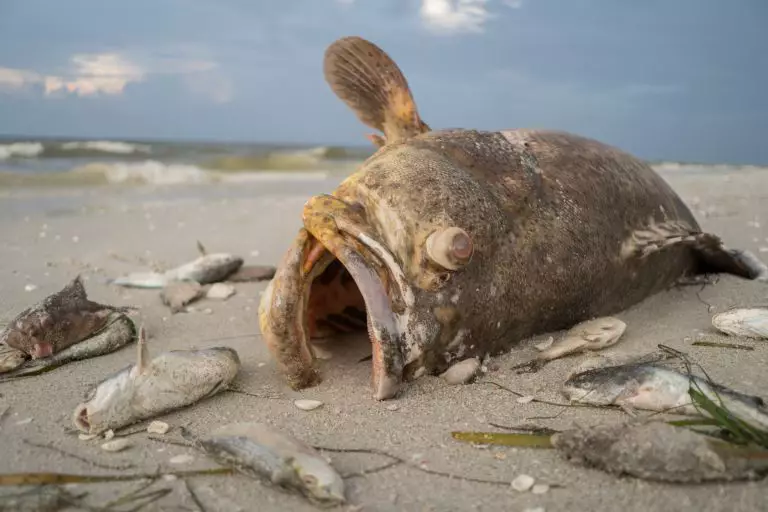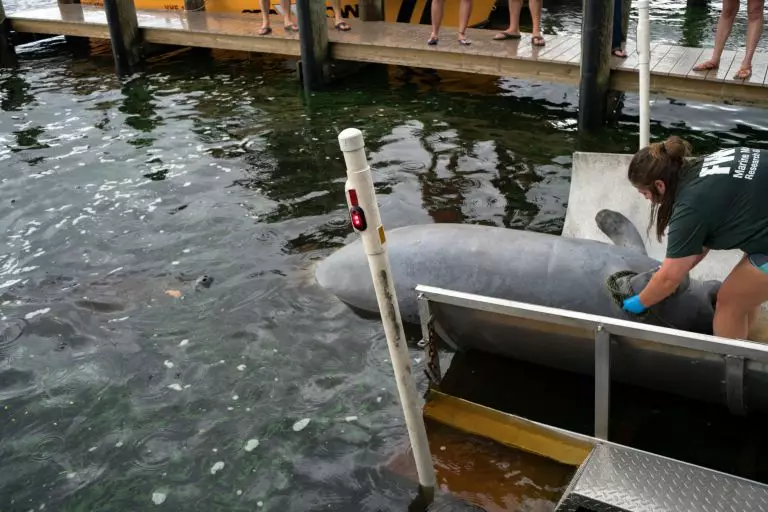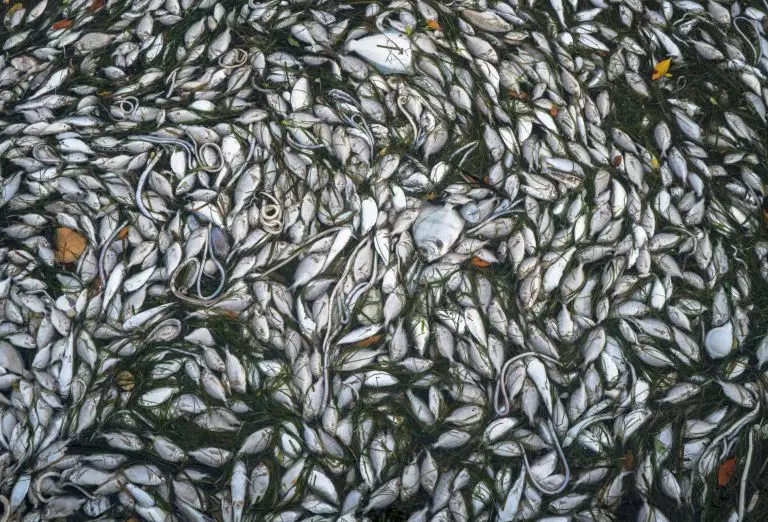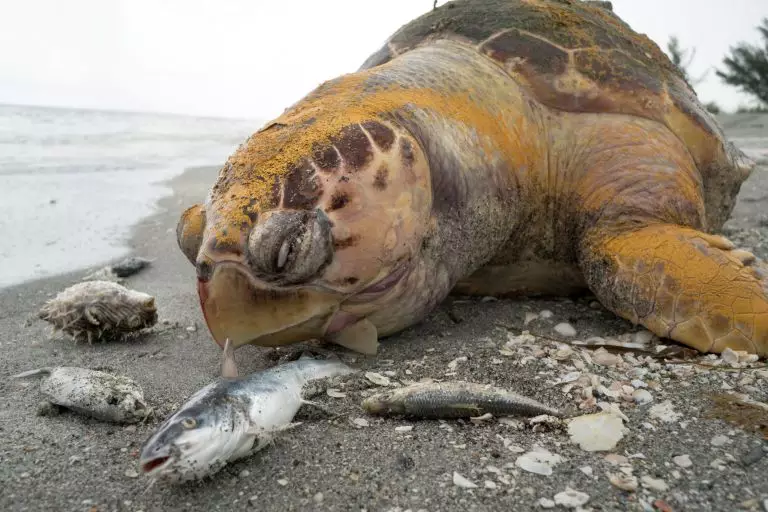
Thousands of sea creatures on Florida's southwestern coast have died this week during the worst red tide event in over a decade.
Devastating pictures, captured by Ivy Yin, shows the corpses of manatees, turtles, dolphins and a variety of fish that were subject to the blooming of the dangerous algae, which has been made worse by sewage and fertiliser finding a way into the waters.

And, according to the Miami Herald, earlier this month, a carcass of a whale shark washed up on Sanibel beach was found with red tide in its muscles, liver, intestines and stomach. The algae has also killed or sickened hundreds of seabirds, including brown pelicans and double-breasted cormorants.
Advert
Red tide is a type of marine algae found on Florida's southwest coast. It experiences an explosive growth every year, where it begins to produce harmful toxins.
Usually, due to currents and winds, some tides ever reach the shore. But this year, due to over-fertilsation and a laid-back attitude to water pollution, the severity or the event has been much worse.

Dr Richard Bartleson, research scientist with Sanibel-Captiva Conservation Foundation, said: "This red tide event has been prolonged by human activities such as farming, development and manufacturing.
Advert
"Over the past number of years, the build-up of chemicals such as phosphorus and nitrogen, among other elements typically found in fertiliser, have provided the perfect nutrients to worsen the bloom."

The algal bloom is also impacting the turtle population, which has left at least 90 sea turtles stranded in the middle of their nesting season.
Heather Barron, head of the Center for the Rehabilitation of Wildlife Veterinarian Hospital said: "Normally red tide season is over in April. But now sea turtle nesting is at its peak, and you have adults in nearshore waters. And because of that they're being affected."
Advert
Ivy Yin, of West Palm Beach, Florida, who documented the incident, has said that we need to raise awareness and demand action to tackle this crisis.
"The mass morality event happening now is absolutely devastating. There is death everywhere. It smells horrible. Animals are struggling to live and mourning their dead," she said.
"There is no escape for these animals from the effects of human indifference, poor resource management, and climate change.
Advert
"We need to resist the temptation to close up our eyes to the pain and suffering that these animals are experiencing."
Featured Image Credit: SWNS